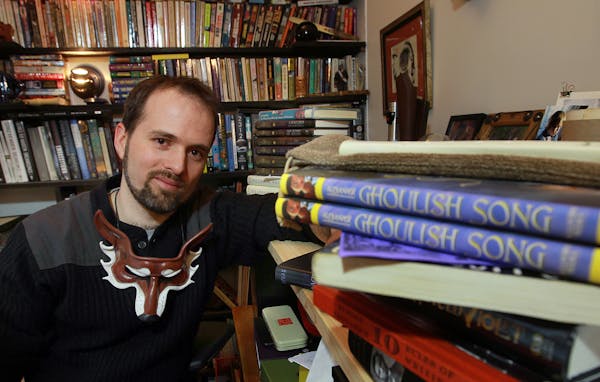On leaving the theater to write: "Theatrical stuff was still fizzing and bubbling in my brain when I started writing — the interaction between the word as written and the word as spoken, getting a sense for how language is well used. You taste the language in your own mouth. You learn the music of it in your own body. You're learning the same dramatic tricks" — pacing, drama, dialogue. "All of that was directly applicable to writing fiction. My first scribbles are always dialogue, to get to know who the characters are."
On outlining: "I romanticize the thrill of dashing out into the dark without knowing where you're going." He didn't outline his first book and wrote it in pieces, over a long time. He outlined his second one, "Ghoulish Song," which was written on deadline. Now, working on his third book, he's reached a compromise with himself: "I have a plan, to make sure I actually finish the story I started. I write outlines, but I feel free to ignore them."
On being edited: "She [Karen Woytyla, his editor at Simon & Schuster] read a better book than the one I'd actually written and made me want to write that one. It was my first book and it was not her first book. She edited it very skillfully."
On writing a "companion book": "Ghoulish Song" is not a sequel to "Goblin Secrets," but a parallel story that takes place in the same town, at the same time. A tiny scene in the first book, in which a baker's daughter gives bread to the goblins, grew into the heart of the second book.
On a planned sequel: "There will be more Zombay! It will be what happened next to both characters. It continues both of their stories and it draws to a head the larger conflicts that are happening in the city as a whole."
LAURIE HERTZEL

Alexander: A beeping computer is telling you what's gone wrong inside

Alexander: How to stop deleted iPhone e-mails from coming back

Alexander: Refurbished PCs may need a BIOS update to use new components

Alexander: Windows 11 not always to blame for browser or e-mail problems


